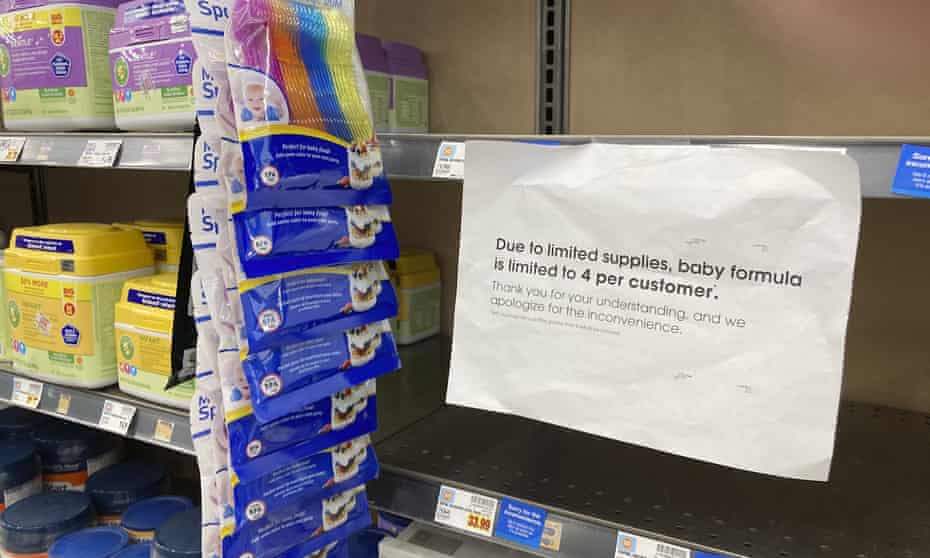
Millions of American families are struggling to feed their infants amidst the ongoing baby formula shortage. Some desperate parents are trying to make at-home substitutes. However, experts suggest otherwise.
Baby formula shortage on the rise

In addition to the strain on supply chains from the pandemic, the shortage is intensifying as the Abbott factory shut down in February due to contamination. Abbott is the largest manufacturer of infant powdered formula. The firm was successful in reaching an agreement with regulators in the US for working toward reopening the plant. However, it will take up to two months for products to reach stores.
Market analysis by Datasembly, a retail research group revealed that 43 percent of products were unavailable in the US in the first week of May. The numbers are higher in states such as Iowa, Tennessee, and Texas. San Antonio was facing a 57 percent shortage by the end of April. On Wednesday, President Biden invoked the Defense Production Act. The war-time measure is aimed at helping boost the production of infant formula in the nation. Additionally, he ordered the Pentagon to fly in shipments from other nations. A bull for shedding the shortages was also passed by the House of Representatives with a majority.
Here’s why experts are against homebrew alternatives:
Parents across the US have been struggling to feed their infants following the crisis. “You feel so defeated because you’re supposed to be able to feed your children and you can’t because there’s nothing there,” admitted Brandy Solan. Solan is a resident of San Antonio and a mother of two infants. A Google Trends review reveals that searches related to how to make baby formula at home have increased by 2400 percent in the last month. Additionally, several people are circulating a baby formula recipe from the 1950s. Unlike many others, she is skeptical about the homemade formula. “You get the [people] from older generations saying, ‘I turned out fine,’ but things are a lot different than they were a generation ago,” said Brandy Solan.
Solan is right to be skeptical about the alternatives for baby food. Dr. Steven Abrams, who has come across the recipe from the 1950s strongly advises people from using it. Dr. Abrams is the former chair of the American Academy of Pediatrics Committee on Nutrition. The standard by which we develop infant formula is breast milk. We’ve come to understand breast milk better and better. If they’re not breastfeeding, [the formula] has got to have all the nutrients in there,” explained Dr. Abrams. Additionally, data from the US Centers for Disease Control and Prevention (CDC) support the notion as infant mortality rates have reduces from 29.2 deaths per thousand live births in 1950 to 5.6 in 2019.
Why it is dangerous to homebrew infant formula?
According to experts, the so-called “homebrews” are highly dangerous in the initial stages of infancy. Nutrients such as iron are vital for proper brain development in babies. Homemade formulas can pose challenges while maintaining sterile conditions. Hence, this can lead to malnutrition or even death. Experts suggest parts try checking local pediatricians for samples and avoid large stores where stocks are low. The academy suggested parents give cow’s milk to infants over the age of six months. While cow’s milk is “not ideal and should not become routine,” it is better than diluted formula and homemade alternatives.






